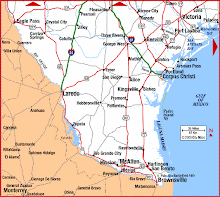Corpus Christi, TX – The social costs are high due to the lack of job creation in the city and in the county. Not too long ago Guy Watts penned the most significant letter to the editor of a local publication seen in years. He described what he called the city’s brain drain problem.
According to Watts, the lack of local employment opportunities cause the best and brightest graduates to flee the city in order to seek meaningful work else-where. He rightly acknow-ledges new economic development initiatives are long overdue.
The old paradigms are not working and have been broken for quite a while. Rather than real job creation, community lea-ders have traditionally believed the big develop-ments and tourism would be the panacea.
Text Box: Chronic lackluster job creation has caused the city and county to exceed both state and national levels of poverty…
They are not the cure. They play a part, but they alone cannot sustain a viable and diverse economy. They contribute to higher rates of underemployment and a sorry labor market. They cannot provide that community wide level of prosperity necessary for residents to enjoy a meaningful quality of life.
Chronic lackluster job creation has caused the city and county to exceed both state and national levels of poverty and working poor. Naturally, poverty is rough on the poor, but everybody pays the related social costs.
Those costs include indigent healthcare, in-creases in violent crime, and chaos caused by substance abuse. It is suspected most occupants of the county jail are not well-to-do.Substance abuse or violent behavior probably helped get them incarcerated.
The Center for Social Science Research at Texas A&M-Corpus Christi deter-mined in a 2004 report that “extreme economic depri-vation” might be the driving force behind family breakdowns.
Hence, local poverty contributes directly to the deterioration of family composition. A lack of family management ef-fectuates problem be-havior, including domestic violence, gang activity and other serious offenses.
The traditional moral compass associated with a healthy family structure is no longer here. Completing an eduction loses its priority and importance. No wonder the area suffers from a stubbornly per-sistent school dropout rate.
UTILITY DISCONNECTIONS:
In the past, local economic indicators included utility connections as a sign of economic growth. An Open Records act request provided an economic corollary. Utility dis-conneciton rates for nonpayment are for residences and that may include any number of occupants, including infants and the aged.
Last year, 14,518 houselhold were dis-connected for nonpayment. There were 16,507 reconnects. The higher reconnect number suggests some of those residential reconnections were carry-overs from 2004 shutoffs.
The city has a reconnect fee of $30. If they were collected, reconnect fees for 2005 brought the city $495.210. Some of those delinquencies deserve the penalty, but punishing the poor or elderly is a flawed policy. The five percent of overdue balance late fees should be adequate in most cases.
The disconnections for 2006 will surpass 2005 if they have not already. Unlike other years where reconnections out number-ed disconnections, city records through July of 2006 confirm 3,873 residences have yet to have their utilities reconnected. The latter is troubling.
Until families can escape the working poor trap, the poverty cycle will continue. Their kids will continue to be the collateral damage of misguided economic policies. The rest of the community will continue to pay the inevitable social costs. Economic charges can be made. Fresh thought and innovation can achieve a turnaround. This com-munity can become prosperous; however, the same old swill will not cut it anymore. [Note: Claude D’Unger of Corpus Christi is an environmental scientist.]
Sunday, October 22, 2006
Subscribe to:
Posts (Atom)
